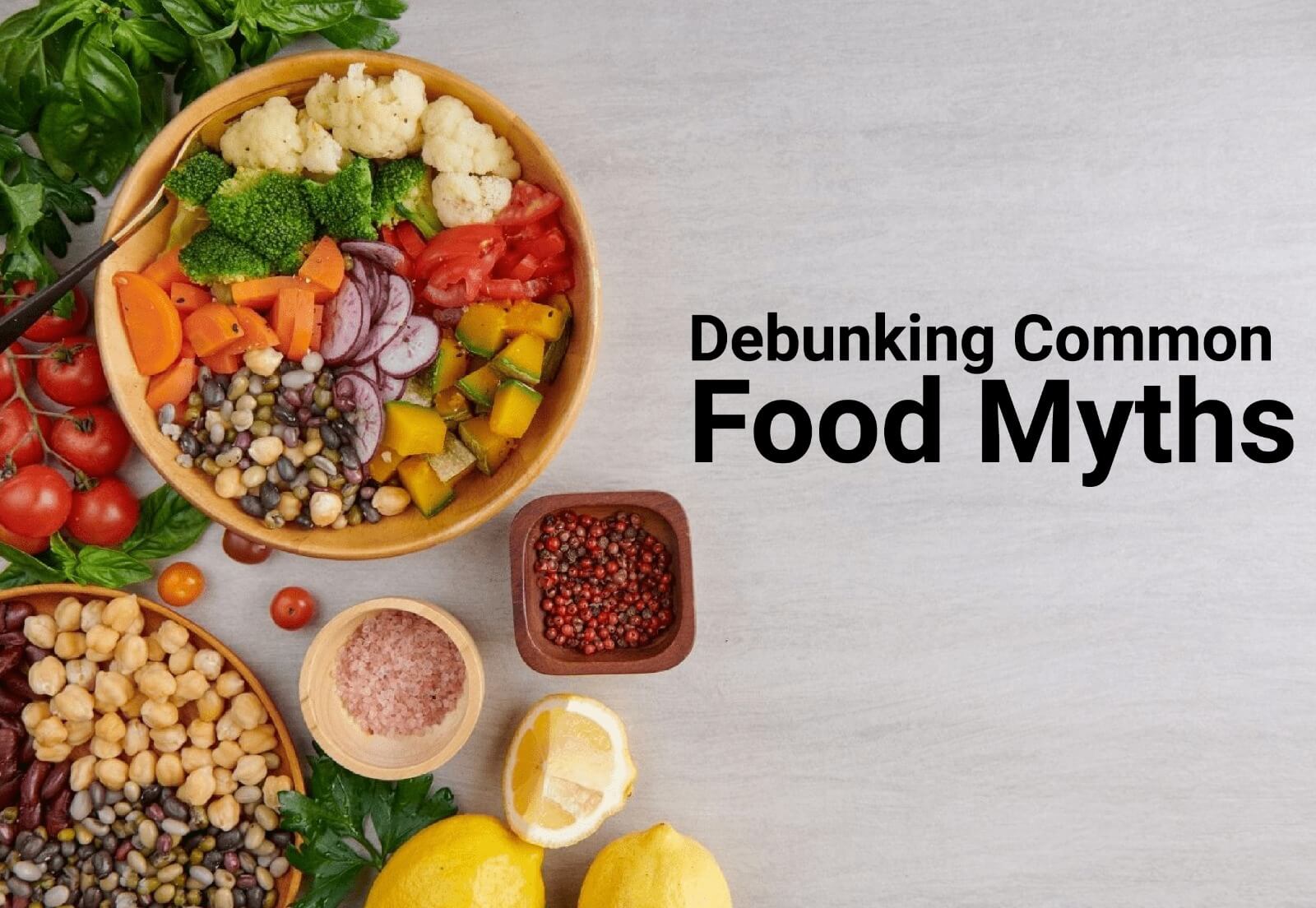Food and nutrition myths are rampant, with many of them ingrained in our culture and widely accepted as true despite a lack of scientific evidence. To make informed decisions about our diets and live healthier lives, it’s crucial to debunk these myths. In this blog post, we’ll explore some of the most common food myths and unveil the truth behind them.
Myth #1:
Carbs are unhealthy. Many individuals avoid carbs, believing that they are detrimental to their health and lead to weight gain. However, this is a fallacy. Carbohydrates are a crucial part of a healthy diet as they provide the body with energy and fiber, promoting digestive health.
Myth #2:
Eating late at night causes weight gain. Another pervasive myth is that eating late at night contributes to weight gain. While consuming excess calories leads to weight gain, the timing of meals is less important than the total number of calories consumed throughout the day. Additionally, some studies suggest that eating a small snack before bed can improve sleep quality.
Myth #3:
Organic food is always healthier. Many people assume that organic food is always healthier than conventionally grown produce. Although organic food is free of synthetic pesticides and fertilizers, there is no evidence supporting the idea that organic food is more nutritious than conventionally grown food. In fact, studies indicate that the nutrient content of both types of food is relatively similar.
Myth #4:
Detox diets work. Detox diets have gained popularity in recent years, with many people believing they help to eliminate toxins from the body and promote weight loss. However, there is no scientific evidence supporting the efficacy of detox diets, and some of them can even be dangerous, leading to nutrient deficiencies and health problems.
Myth #5:
Low-fat or fat-free foods are always a healthier choice. Many people believe that low-fat or fat-free foods are always a healthier choice because they contain less fat and calories. However, many low-fat or fat-free foods are actually high in sugar and other additives to compensate for the loss of flavor that occurs when fat is removed. Additionally, some fats, such as those found in nuts and avocado, are actually beneficial for heart health. The key is to choose healthy fats in moderation and to focus on whole, unprocessed foods rather than processed low-fat or fat-free products.
Myth #6:
All calories are created equal. It’s often said that “a calorie is a calorie” and that as long as you stay within your daily calorie limit, you can eat whatever you want. However, this is not entirely true. While it’s true that weight loss ultimately comes down to a calorie deficit, not all calories are created equal in terms of how they affect the body. For example, a calorie from sugar will have a different effect on the body than a calorie from protein. Additionally, certain foods, such as those high in fiber or protein, can help you feel full and satisfied for longer, making it easier to stick to your calorie goals. So, while counting calories is a useful tool for weight loss, it’s also important to focus on the quality of the calories you are consuming.
Conclusion:
Nutrition myths and misconceptions are pervasive, but debunking them is critical for making informed dietary choices and leading healthy lifestyles. Remember, maintaining a balanced diet and regular exercise are key to achieving good health. Don’t fall prey to fad diets or nutrition myths that lack scientific evidence.


Post Comments